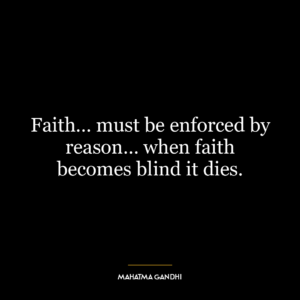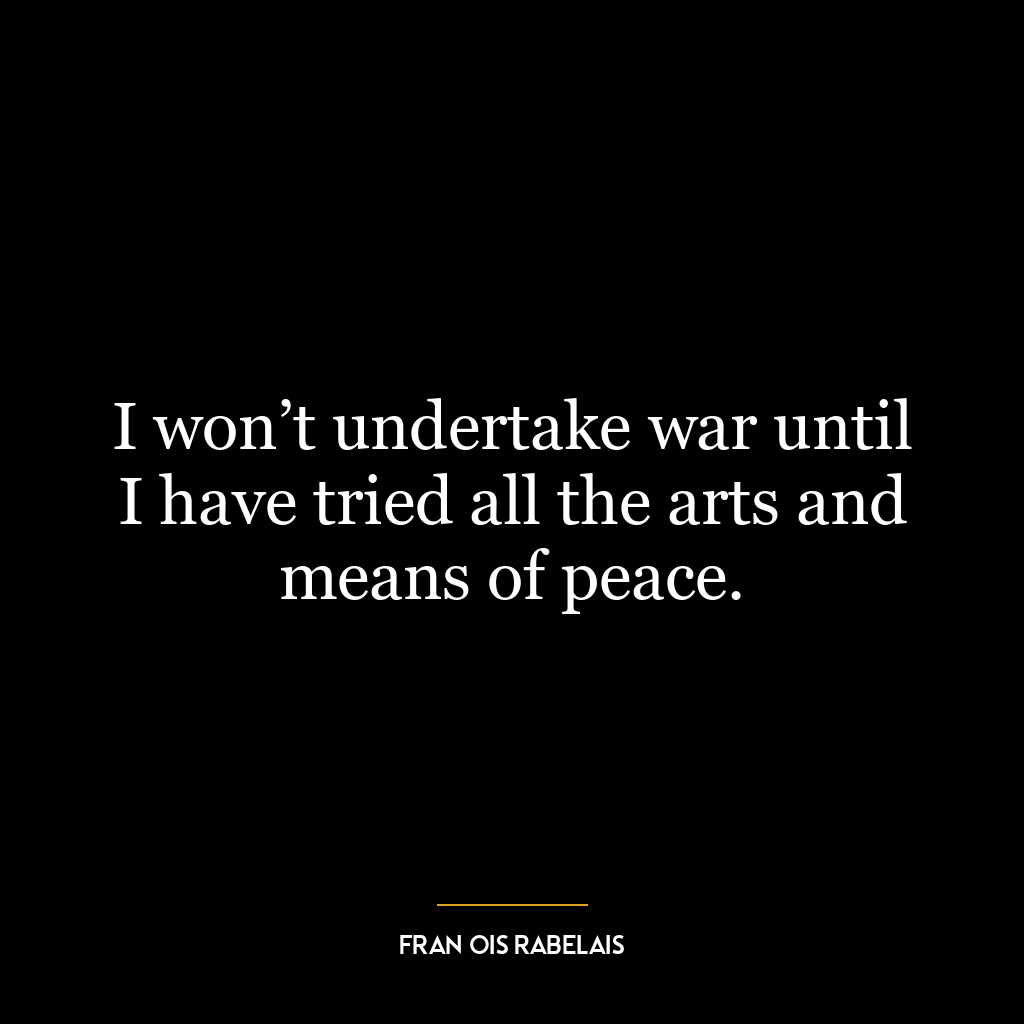A satyagrahi, whilst he is ever ready to fight, must be equally eager for peace.
This quote encapsulates the philosophy of satyagraha, a nonviolent resistance approach developed by Mahatma Gandhi. In essence, it suggests that a practitioner of satyagraha, referred to as a satyagrahi, should always be prepared to resist injustice or fight for their cause. However, they must also be just as enthusiastic about finding peaceful resolutions and fostering harmony.
The reference to being ‘ever ready to fight’ does not imply physical violence or aggression. Instead, it refers to the moral and spiritual strength required to stand against unjust actions or systems. It’s about having the courage and determination to face adversity while upholding one’s principles.
On the other hand, the ‘eagerness for peace’ represents an intrinsic desire for harmony and justice without resorting to violence or hatred. This means striving for solutions that respect everyone’s rights and dignity rather than seeking victory at any cost.
Applying this philosophy in today’s world can be seen in various social movements advocating for change through peaceful means rather than violent confrontations. For instance, peaceful protests against racial discrimination or climate change embody this spirit of being ready to fight (for justice) but eager for peace (through non-violent means).
In terms of personal development, this quote could inspire individuals to stand up against their own internal struggles with resilience while also seeking harmonious solutions within themselves. It encourages us not only confront our fears and challenges head-on but also find peaceful resolutions without causing self-harm emotionally or mentally.
Ultimately, this quote promotes a balance between assertiveness and compassion – standing firm on one’s beliefs while respecting others’ rights – which is crucial in navigating both societal issues and personal growth journeys.









